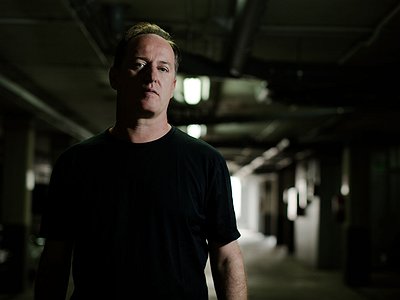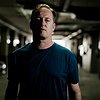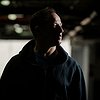Part 2
How would you define the job and describe the influence of the DJ? How are the experience and the music transformed through your work?
Depends what kind of DJ you are. There's been a real fork in the road when it comes to what a DJ is in the mid-2000s with the rise of the super commercial EDM DJs. The guys that want to play forward-thinking music and want to post the envelope with technology and all those kind of things have gone down one fork, and then guys that just want to make big hit records have gone down another fork.
It really does come to personal taste and style. You know we've all got friends who no matter what they seem to wear look great, they always dress right and are always well put together even if it's just jeans and a T-shirt, and they've just got it. And then we've also got friends who no matter what they seem to wear the can't seem to get it together, they always just look like they've got the wrong clothes. (chuckles) I think the successful DJs are the ones that have got a style and they've got a uniqueness to them, and they put things together in a certain effortless way, and it's a style and an expression of the self. Everyone wants to be unique. There are so many DJs now, and the biggest difference between now and when I was starting is just the sheer volume of DJs, it's endless now; there wasn't that volume of DJs when I was building my career. I guess I was very lucky like that. I didn't have the same level of competition that there is now, I think it's very hard for DJs to break through now because of that. But like I said, if you've got your own style and your own clear vision in your head of what you want to be doing, that can really shine through in the music; it's personal taste and style, some people have got it and some people haven't really got it.
What was your first set-up as DJ like?
My set up was these really dodgy belt-driven decks; it had a pitch control on it, but if you touched anything the records would jump. So you could start the record but once it was going you really couldn't touch it to slow it down, or speed it up. So I had to master how to move these pitch control things around to try and get a mix together, but if you could get more than a couple of bars together you were absolutely buzzing. (laughing)
How and for what reasons has your set-up evolved over the years and what are currently some of the most important pieces of gear for you?
I've gone through quite a few phases, I was quite an early adopter of the whole Ableton Live thing, and I really got into that. I even built my own controller called a Maven, which was a little bit like the ApC40, but it had a sound card built into it. A friend of mine built it, we used really high quality components for it, it was a lovely piece of equipment. I'm currently building a new room that I am going to build a new studio in, and I’m definitely going to dig it out of storage. I still think it's got a really important play, it might end up back in my live show that I’ve been working on.
I went through using computers, from Ableton, then I switched over to Traktor and I started using that a lot. I liked using Traktor in remix mode, so that you could use the CDJs to control tracks. But then I just kept on having crashes in important gigs and I kept on having problems. I remember one day that I had a major problem with the Maven and I had to burn CDs in the DJ booth in order to play a gig, and I just got sick of carrying around all this gear. So then I switched over to using Traktor with the CDJs, which was a lot easier cause all I had to bring was my laptop. But I’d still have technical problems with it, I’d still have crashes out of nowhere. I remember 3 years back I bought a new computer and on the first gig everything just failed on me, I'd just had enough. So the next gig I burned myself USB sticks, and I haven't really looked back from there. I like to bring a couple of effects pedals with me, I really enjoy playing with the Pioneer RMX1000 decks, and I carry an H9 pedal with, which can pretty much do everything. It’s got crazy reverbs, delays, it can do so many different sounds; I pretty much stick to a few of my favourites on there. I've really gone back to just DJing when I'm DJing; for a while I was really trying to remix everything while I was playing ... I know some of the techno guys do this and I'm really impressed when they do it, but I got sick of the technical things letting me down and having problems like that. So I've kind of gone back to just turning up with a USB stick and that's my tech rider really.
Production tools, from instruments to complex software environments, contribute to the compositional process. How does this manifest itself in your work? Can you describe the co-authorship between yourself and your tools?
I do like using my hands for things and performing, you know I’ve spent a lot of time over the last couple of years playing the piano again and using technology for that. My piano teacher is actually in Australia, we get onto Skype together; sometimes it's 6AM for me, it's a bit of a quiet time - you've come to realise I like working in these odd hours when everyone's asleep, cause I can just focus. Doing piano lessons at 5AM or 6AM I found this to be so powerful, especially if its' the first thing you do when you wake up. It really embeds itself in your head before you even get going, you don't have time to think about what else is going on in the day, you just focus.
I've always found that the best records come from a performance; whether it's you jamming on a drum machine, or playing around with a piece of software, whether it's a performance on a synth, tweaking a filter out, whether it's actually playing something or a vocal performance. I always felt the best records have to have some level of performance in them to really make them feel like they've got a soul. I've always found that whenever I tried to put records together on a computer screen, and there isn't really a performance aspect to it, it's a lot more copy-and-paste. The end product always felt a little soulless and I’ve struggled with that. Sometimes you can put something together really interesting like that, and I know a lot of people that just use the computer to write music and write really emotional, soulful music. But for me, to be able to use my hands, whether it's a Midi controller, or a synth, or a performance on the piano - there just has to be something in there, in the song, to make it feel like it's got some life to it.
How do you make use of technology? In terms of the feedback mechanism between technology and creativity, what do humans excel at, what do machines excel at?
I think it's really interesting that a lot of people and companies now have focused on making very much performance-based little boxes, things that are meant to be used in a live environment, that are meant to synchronise together. I think that a lot of the problems that techno/electronic music bands had touring with electronic instruments back in the day, was that they were so unreliable; trying to synch things up, trying to get things to stay in tune, all that stuff has kind of been fixed now. Then you've got companies like Roland that are really focused on performance-based equipment that links together perfectly, you've got Native Instruments with all their machine and control stuff that really work. Then you've got Korg with all their little Volca Boxes. They're just really fun things to use and to perform with. there's some really clever people thinking about what you can do in a live environment, and it also makes working in the studio really fun. When you set a studio up like it's a live room, which is what I’m planning on doing very soon, it just becomes a gigantic grown-ups toy room. We call them gadgets and toys, and they are - they're really fun things to play with if you get to know them. When you've got a whole room of knobs and faders to fiddle with, and it's all synched together and working it's just such a fun environment to go into.
How is playing live and writing music in the studio connected? What do you achieve and draw from each experience personally? How do you see the relationship between improvisation and composition in this regard?
It's almost like a new thing to me, and it's so fantastic that at this point in my career I can almost completely reinvent how I look at music and approach writing music. I put together a live show this year, and it was the hardest thing I’ve ever had to do; 6 months of intense piano training, I was doing 4-5 piano lessons a week at one point. How to reinterpret all these old songs - you know a lot of the old songs we'd lost all the parts to them so we had to recreate things. We couldn't just recreate it though with a bit of software, we had to recreate it with a box that could be on stage; whether it be a synth or a drum machine. Going through my entire back catalogue and figuring out how to reinterpret all this stuff into a live environment has just changed my whole way that I want to write music from now on.
In our rehearsals, there were four of us in the room; Dave Gardner, Dennis Thermal Bear, Charlie May (who is a longtime collaborator), and myself. Each of us had to work on stage with all our gadgets around us, and there were certain points where in-between rehearsing a song we were just jamming away. We were kind of writing music on the spot. It felt like being part of a band and everyone was contributing to the energy in the room, we were really feeding off each other and it felt like a really fantastic way to write music.
I got so used to working in the studio, like I said, writing things on my laptop and then sending them over. Even if we were in the same room together, there's only one person that can sit at the computer any one time and work on things. So having this live set up has completely changed the my opinion on how I want to write music moving forward, and I'm really looking forward to the next time we can get together and jam. I think that in a short space of time the amount that you can actually come up with is phenomenal. And thinking forward, I don't really I want to write music and other way.








